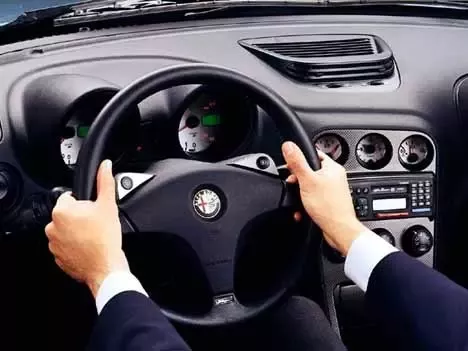Hello!
Are you experiencing a problem with your car’s steering wheel turning by itself?
This can be a frustrating and dangerous issue that can cause accidents.
In this article, we will explore the causes of steering wheel turns by itself and provide solutions to this problem.
We will also discuss how to fix this issue and prevent it from happening again.
So, if you’re looking for answers to why your steering wheel turns by itself, you’ve come to the right place.
Let’s dive in!
What Are The Causes Of Steering Wheel Turning By Itself?
1: Uneven tire wear
Over time, tires may deteriorate due to various factors, including road surface conditions. If your vehicle’s tires have uneven pressure, it can result in complications within components like the steering system. This irregular pressure can prompt the steering wheel to move independently, primarily due to an incorrect wheel angle that deviates from the norm. Consequently, the steering wheel may swerve, leading to uneven tire wear, often concentrated on the inner or outer edges. This manifests as the vehicle veering to one side, accompanied by steering wheel vibrations and a noticeable deceleration, particularly at high speeds.
2: Steering column misalignment
After an extended period of driving, you might notice a misalignment in the steering wheel. This misalignment issue causes the steering to subtly shift to one side, causing the car to travel in a curve rather than a straight line. Maintaining a straight course becomes challenging, requiring constant correction. The three primary factors contributing to spontaneous steering wheel movements due to misalignment are collisions, unevenly balanced tires, and faults in the assisted steering input or steering column.
3: Dragging or stuck brake calipers
Essential to the braking system, brake calipers play a crucial role in slowing down or stopping the vehicle. If these calipers become stuck or drag, they can induce the steering wheel to turn autonomously. The issue arises when the calipers fail to release the brake pads from the rotor, causing the car to pull to one side.
4: Damaged steering system bushings
The steering system comprises components like the steering rack, steering column, and bushings. If the bushings, responsible for securing the steering column in place, become damaged, the steering wheel may turn independently. The impairment of these bushings allows the steering column to shift, resulting in involuntary movements of the steering wheel.
5: Malfunctioning torque sensor
Responsible for measuring the force applied to the steering wheel, a malfunctioning torque sensor can cause the steering wheel to turn independently. When the sensor fails to transmit accurate signals to the vehicle’s computer, it falsely interprets steering wheel movements, leading to unintended steering actions.
6: Worn steering rack
The steering rack converts the rotational motion of the steering wheel into linear motion. If the steering rack wears out, it can cause the steering wheel to turn autonomously as it struggles to convert rotational motion correctly.
7: Low tire pressure
Inadequate tire pressure can prompt the steering wheel to turn independently. This issue arises because low tire pressure contributes to uneven tire wear, resulting in deviations or complications in the steering system. The steering wheel responds by turning independently due to the incorrect wheel angle, deviating from the standard position.
8: Air in engine steering
The presence of air in the engine steering system can lead to autonomous steering wheel movements. Air in the system may disrupt the power steering pump, causing malfunctions and, consequently, the steering wheel turning on its own.
How Do You Resolve Issues Related To Steering Wheel Turning By Itself?
-
Inspect tire pressure and tread wear
Ensure that your vehicle’s tires are properly inflated and exhibit no signs of wear. Uneven tire wear can introduce deviations or complications in components such as the steering system, resulting in autonomous steering wheel movements. Irregular tire pressure can lead to the steering wheel swerving, causing uneven wear, typically concentrated on the outer or inner edges. This may result in the vehicle veering to one side, accompanied by steering wheel vibrations and a noticeable deceleration, particularly at high speeds.
-
Adjust the steering column alignment
Correct any misalignment in the steering wheel to prevent the car from veering off in a curve rather than a straight line. Keep a firm grip on the steering wheel to maintain a straight course. The primary causes of autonomous steering wheel movements due to misalignment include vehicle collisions, unevenly balanced tires, and faults in the assisted steering input or steering column.
-
Replace faulty brake calipers
In the event of dragging or stuck brake calipers, replace them to prevent the steering wheel from turning autonomously. This issue arises when the brake calipers fail to release the brake pads from the rotor, causing the car to pull to one side.
-
Replace damaged steering system bushings
If the bushings in the steering system are damaged, replace them to prevent autonomous steering wheel movements. The bushings play a crucial role in securing the steering column in place, and if compromised, the steering column may shift, resulting in the steering wheel turning on its own.
-
Replace malfunctioning torque sensor
Address any issues with the torque sensor to prevent autonomous steering wheel movements. Malfunctions in the torque sensor can lead to incorrect signals being sent to the car’s computer, causing it to misinterpret steering wheel actions.
-
Replace worn steering rack
If the steering rack is worn, replace it to prevent autonomous steering wheel movements. A worn steering rack may struggle to convert the rotational motion of the steering wheel into linear motion correctly.
-
Monitor tire pressure levels
Regularly check and maintain proper tire pressure to prevent autonomous steering wheel movements. Low tire pressure can contribute to uneven tire wear, causing deviations or issues in the steering system, ultimately leading to autonomous steering wheel actions.
-
Eliminate air in the engine steering
Address any air in the engine steering system to prevent autonomous steering wheel movements. Air in the system can disrupt the power steering pump, leading to malfunctions and autonomous steering wheel actions.
Why does my steering wheel turn by itself in park?

Several factors can contribute to the steering wheel turning on its own while in park. Among the common culprits is the misalignment of the steering column, which can result in the car following a curved path rather than moving in a straight line.
Uneven tire wear is another potential cause, introducing deviations or issues in the steering system that may lead to autonomous steering wheel movements. Additionally, low tire pressure can prompt the steering wheel to turn autonomously by causing uneven tire wear.
Other potential causes encompass damaged steering components, malfunctioning torque sensors, and the presence of air in the engine steering system.
How Can You Prevent Unwanted Steering Wheel Movements?

To minimize instances of the steering wheel turning on its own, consider the following tips:
- Maintain a Comfortable Driving Posture: Adopt a comfortable driving position to handle the steering wheel with flexibility in various situations.
- Observe Speed Limits: Drive within specified speed limits, avoiding dangerous overtaking. Maintain a safe distance from vehicles moving in the same direction and adhere to traffic laws.
- Reduce Speed Before Turning: When preparing to turn, decrease your speed and ensure a firm grip on the control arms during cornering.
- Smooth Acceleration and Braking: Avoid stepping on the accelerator too soon, sudden acceleration reduction, or sharp braking in the middle of a turn.
- Adapt to Weather Conditions: Exercise caution in adverse weather conditions, such as fog or slippery roads. Turn on lights appropriately, maintain a slow speed, and minimize emergency braking.
- Regular Vehicle Maintenance: Aside from focusing on driving techniques, pay attention to your vehicle’s condition. Regularly check and maintain the engine, suspension struts, steering system, suspension system, control arms, tires, infotainment screen, and other components to ensure smooth operation and prevent problems.
FAQs
Can you drive a car with a steering wheel that turns by itself?
Driving a vehicle with a steering wheel that turns autonomously is strongly discouraged due to the potential danger it poses, which may lead to accidents. If you encounter this problem, it is advisable to promptly consult a professional mechanic. They can thoroughly examine the steering system and determine the root cause of the issue, ensuring a swift and effective resolution.
What are the signs of a bad steering rack?
Indicators of a malfunctioning steering rack encompass challenges in steering, uneven tire wear, a burning scent from the engine, and a grinding noise when turning the steering wheel.
Can low power steering fluid cause the steering wheel to turn by itself?
Affirmative, insufficient power steering fluid can lead to autonomous steering wheel movement. The power steering system relies on hydraulic pressure, and low fluid levels can trigger malfunctions, causing the steering wheel to turn independently.
Can a bad alignment cause the steering wheel to turn by itself?
Certainly, a flawed alignment can result in the steering wheel turning autonomously. This occurs because poor alignment can cause the vehicle to veer in a curved trajectory rather than a straight line, prompting the steering wheel to turn on its own and inducing uneven tire wear and related issues.
Conclusion
The steering wheel turning by itself can be both frustrating and perilous, potentially leading to accidents.
The prominent causes of the steering wheel turning by itself encompass uneven tire wear, steering column misalignment, sticking or jammed brake calipers, damaged steering system bushing, malfunctioning torque sensor of the steering, worn steering rack, low tire pressure, and air in the engine steering.
To avert such occurrences in the future, routine maintenance, diligent checks of tire pressure and wear, and the alignment of the steering column are essential.
Should you encounter this issue, it is advisable to consult a professional mechanic for a comprehensive inspection and identification of the underlying cause.




